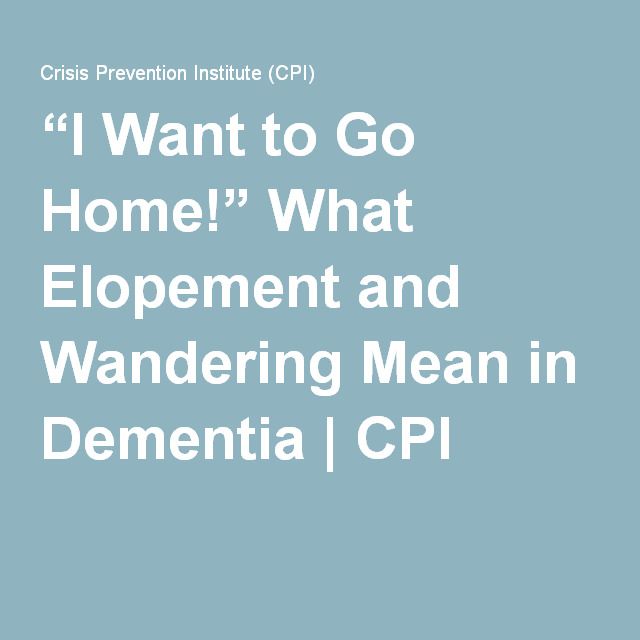Is The Environment Bothering Them
There could be a variety of reasons behind a persons desire to return home, one of which could be associated with fulling an environmental need. A person who is living with dementia may experience a great deal of discomfort if the setting in which they find themselves does not have a welcoming, comfortable, familar, or practical, vibe to it.
Are there any smells or textures that would be comforting and familiar to them?
Aggressive Behaviour In Dementia
In the later stages of dementia, some people with dementia will develop what’s known as behavioural and psychological symptoms of dementia .
The symptoms of BPSD can include:
- increased agitation
These types of behaviours are very distressing for the carer and for the person with dementia.
It’s very important to ask your doctor to rule out or treat any underlying causes, such as:
- uncontrolled pain
- infection, such as a urinary tract infection
- side effects of medicines
If the person you’re caring for behaves in an aggressive way, try to stay calm and avoid confrontation. You may have to leave the room for a while.
If none of the coping strategies works, an antipsychotic medicine can be prescribed as a short-term treatment. This should be prescribed by a consultant psychiatrist.
Consider Moving To A 55 And Older Or Retirement Community
While adding safety features in your existing home is a good option, another option to consider is moving to a community geared to older residents. While these communities may vary in cost, they often come with features that may help care for a loved one at home. Safety features such as nonslip tubs are already in place, and neighbors may have loved ones in similar situations. Many continuing-care retirement communities include areas that offer higher levels of care as a persons dementia advances. This allows a more active spouse to live independently on the same campus.
Recommended Reading: Is Swearing A Sign Of Dementia
Responding When A Person With Dementia Wants To Go Home
People with Alzheimer’s disease or other types of dementia will often say they want to “go home.” Family members and caregiving staff in nursing homes and assisted living facilities hear this question often. It can be hard to know the best way to answer it.
This article offers some suggestions for how to respond when a person with Alzheimer’s disease says they want to go home.
Establish Whether Or Not They Are Feeling Unhappy Or Lonely

A person with dementia may want to ‘go home’ because of feelings of anxiety, insecurity, depression or fear.
Is the person with dementia happy or unhappy now? If they are unhappy, it may be possible to discover why. If they cannot tell you why, perhaps a member of the staff or another resident knows why.
Like other people, someone with dementia may act out of character to the people closest to them as a result of a bad mood or bad day.
Does the person with dementia keep talking about going home when people are not visiting them in the care home? Does he or she seem to have settled otherwise? The staff in the home may know.
You May Like: Symptoms Dementia And Alzheimer’s
What It Means When A Person With Dementia Says I Want To Go Home
< 
The No. 1 priority is to keep your loved one safe, Hashmi says. He suggests the following actions:
- Secure all doors. Be especially vigilant about doors that lead outside.
- Use technology. Tracking devices and surveillance systems are widely available and affordable.
- Enlist a team. Neighborhood watch groups and local police are often happy to help keep an eye out for your loved one.
Don’t Miss: How Does Dementia Affect The Muscular System
Reminiscing Can Provide Comfort
The next time your loved one talks about going “home,” remember that it may be a reference to the past. Try to respond with some questions of your own. For example, you can ask about your loved one’s childhood memories, or you can look at old family photographs together. Reminiscing about childhood and the home where the person grew up can be comforting.
You might also try using validation therapy. With this approach, you validate your loved one’s experiences and emotions by asking questions that help them process their feelings. This can help your loved one work through the loss of their sense of comfort. Some questions could include:
- What was your childhood house like?
- Do you miss it?
- What was the best thing about your family?
- What was your favorite home-cooked food?
- How did the kitchen smell?
- Did you share a bedroom with your siblings?
Try echoing your loved one’s feelings. For example, you could say, “You must wish you could be at home right now.” This can help the person feel like you understand what they’re feeling. That can be very comforting.
Tips For Managing Your Loved Ones Confusion
Simplification is key here, Hashmi says. To help minimize confusion, he suggests several ways to simplify both the home environment and your interactions:
Provide structure.
- Keep familiar objects around to help reorient your loved one.
- Label drawers and cabinets. This is especially helpful if confusion about where to find things is a common trigger.
- Use tools such as alarms, calendars, and to-do lists to help them remember tasks.
Deliberately use simple, short sentences and ask yes/no questions.
- Normalize their experience. Say, Youre confused. Its okay. Well figure it out together.
- Lead with what you think might be happening. For example: It seems like youre looking for something.
- Its often much easier for your loved one to answer yes or no questions, instead of coming up with the words themselves. Are you looking for your keys? Are you looking for your glasses?
Lastly, Hashmi says, it helps if you can learn to accept the confusion. In the moment, he says, whatever your loved one thinks is real is in fact their reality. For example, they might think theyre at work when theyre really at home. If that belief isnt hurting them or anyone else, its OK for you to play along a little bit. Confronting or trying to change the belief often leads to agitation and aggression.
For us as caregivers, we have to be OK with that confusion, Hashmi says.
You May Like: Is Dementia A Psychiatric Or Neurological Disorder
How To Make It More Home
Here are some tips and ideas for how to make wherever they live more home-y to them!
If having pictures of their family and friends around makes them happy, put up as many as you can. Being surrounded by this kind of support is amazing. That said, if seeing a bunch of strangers staring at them agitates your person with dementia, then remove all the pictures of people.
Pictures of places. My Mother In Law grew up in Minnesota so she loves pictures of snow, lakes and woods. Even though we live in Florida now, we have a much more country vibe in her room to help her feel like she belongs.
Warm blankets. Many Alzheimers and dementia people are cold. Having lots of warm blankets around to snuggle up in is an easy way to make comfort. Bonus, with lots of blankets, if they make a mess you can just swap them out and toss them in the washer for a quick clean.
Soft music. Sometimes it is hard not to have things running through your mind when sitting in complete silence. Playing some soft music in the background could help! Try all different eras, some may want jazz, some 80s rock and some might want to go all the way back to the big bands they listened to as kids.
How To Cope With Common Changes In Behaviour
Although changes in behaviour can be difficult to deal with, it can help to work out if there are any triggers.
For example:
- Do some behaviours happen at a certain time of day?
- Is the person finding the home too noisy or cluttered?
- Do these changes happen when a person is being asked to do something they may not want to do?
Keeping a diary for 1 to 2 weeks can help identify these triggers.
If the change in behaviour comes on suddenly, the cause may be a health problem. The person may be in pain or discomfort from constipation or an infection.
Ask a GP for an assessment to rule out or treat any underlying cause.
Keeping an active social life, regular exercise, and continuing activities the person enjoys, or finding new ones, can help to reduce behaviours that are out of character.
Read more about activities for dementia.
Other things that can help include:
- providing reassurance
- activities that give pleasure and confidence, like listening to music or dancing
- therapies, such as animal-assisted therapy, music therapy, and massage
Remember also that it’s not easy being the person supporting or caring for a person with behaviour changes. If you’re finding things difficult, ask for support from a GP.
Recommended Reading: What To Do About Alzheimer’s
Visiting In The Later Stages
Find an activity that will draw in as many of the senses as possible sight, taste, smell, hearing and touch.
- Touch a gentle kiss or hand holding can be reassuring.
- Sensory massaging legs, hands and feet with scented creams or oils may be enjoyable for some people. The scent of perfumes and flowers can also be enjoyed.
- Facial expressions a smile, a comforting gaze or a look of affection can often provide reassurance to a person with dementia.
- Music for many people, music can provide comfort and familiarity.
- Visitors visits from friends and relatives, even though they may not be recognised or remembered, can provide stimulation and comfort.
- Books being read a favourite book or poetry can provide enjoyment.
- Walking a stroll around the grounds, even if in a wheelchair, may be enjoyable for both the resident and visitor.
There is no correct number of times to visit or amount of time to stay. The important thing is to make each visit as rewarding as possible.
What Should You Keep In Mind While You Respond
Communicating with someone who has dementia is like solving a puzzle. You may have already had experience trying to communicate with your parent with dementia when they refuse help or reminding them gently about other small things.
Couch your communication in certain foundational principles until you know you have hit upon the most effective communication strategies.
As time goes on and your loved one gets worse, you may need to be flexible and try other communication methods. Lets look at some guidelines as you respond to the request to go home.
Recommended Reading: How To Get Someone With Dementia To Sleep At Night
You Alone Have To Decide What Level Of Truth You Are Comfortable Telling
Talk with your loved ones doctor about the diseases progression and their recommendation on what to say and how truthful you may want to be.
If you arent comfortable telling an outright lie, that is OK and so is not being entirely honest. Discuss options with the rest of your family, so you all agree on consistent messaging.
Jump Ahead To These Sections:

We also know this. People with dementia have common symptoms that include problems with memory, difficulty expressing ideas, disorientation to time and place, poor judgment, anxiety, and depression.
It is common for people with advancing dementia to not remember what was said minutes before and to repeatedly ask the same question over and over again.
If your loved one is in memory care, assisted living, or nursing home care, they may ask to go home.
Both of you may have a hard time dealing with the anguish caused by this request. There may be no simple solution, but we have some tips to keep you both calm and centered.
» MORE:
Don’t Miss: How Do You Die From Alzheimer’s